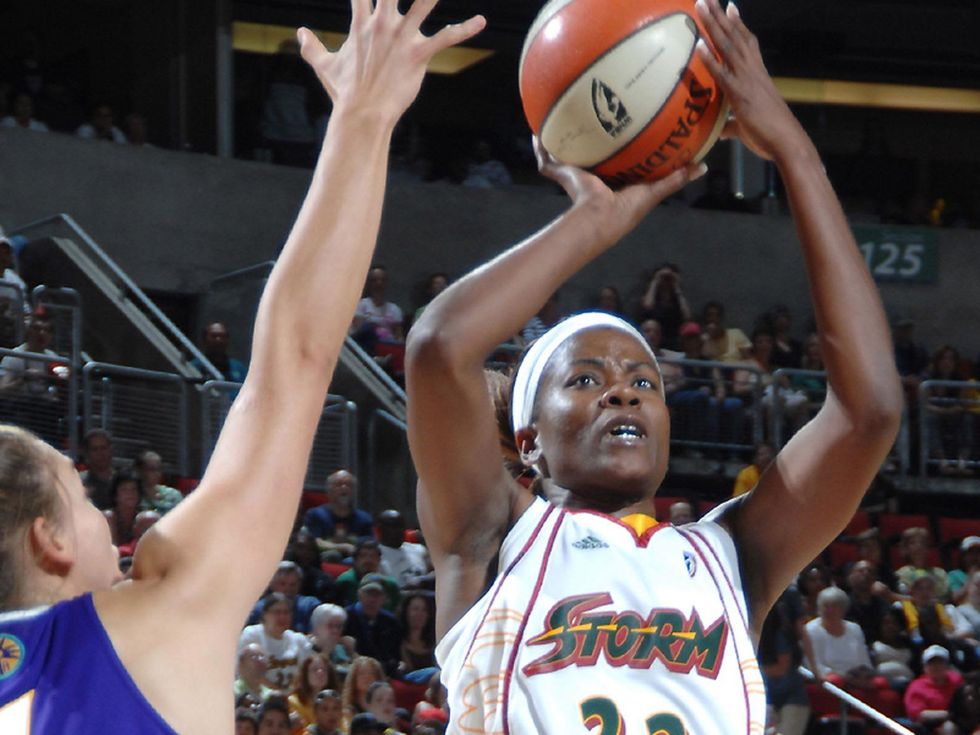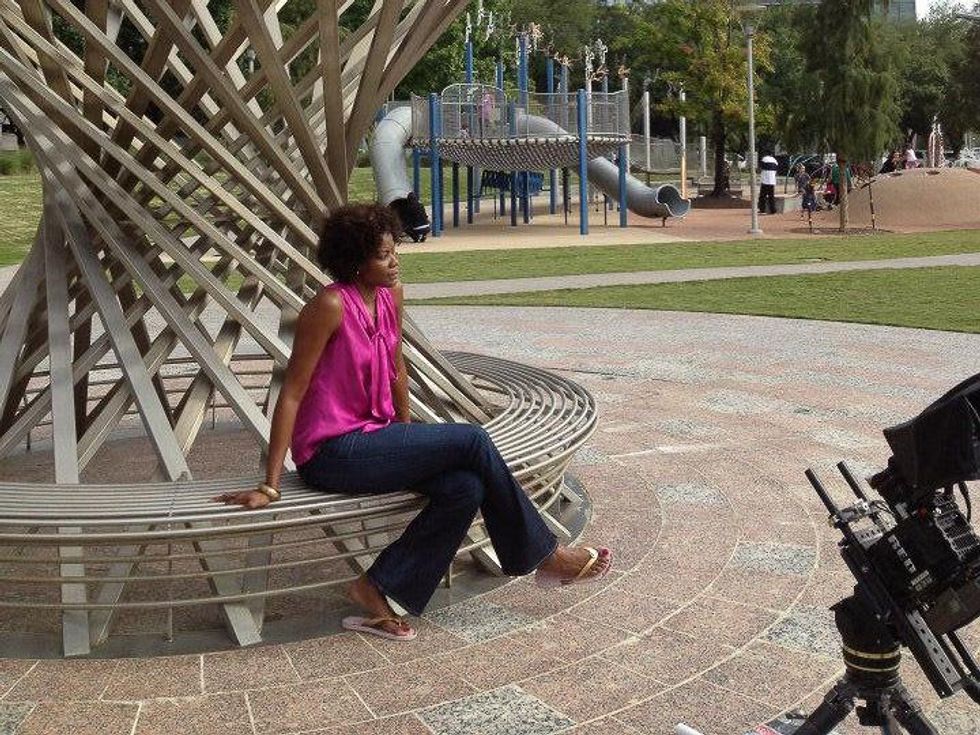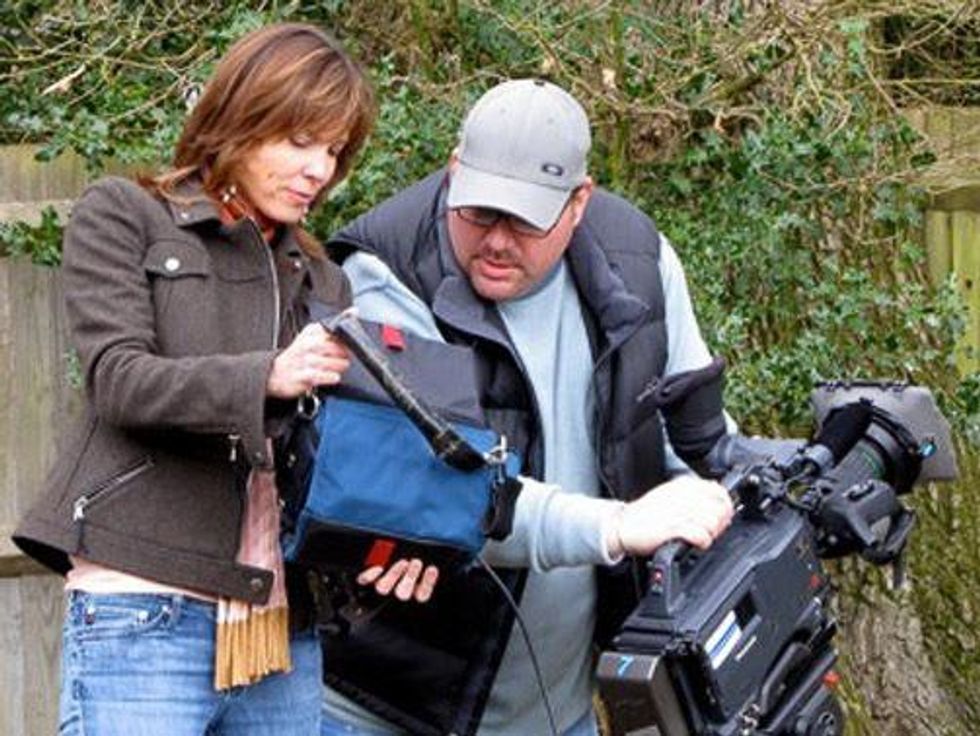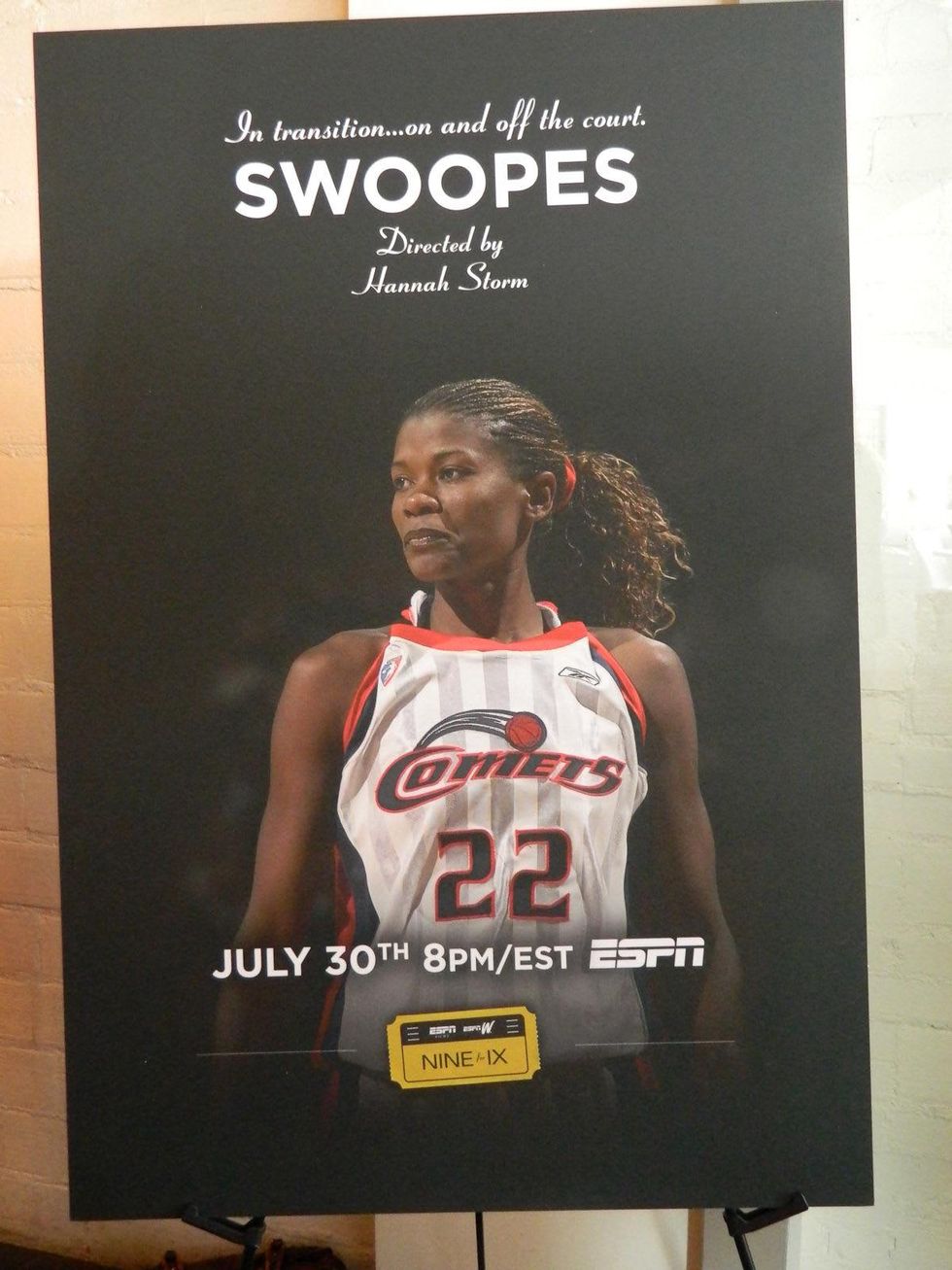Movies Are My Life
WNBA legend Sheryl Swoopes reveals her financial troubles, her old Comet feuds and more
Former Houston Comets superstar Sheryl Swoopes said she’d already viewed Swoopes — the celebratory ESPN documentary about her life, career, and significance in sports history — “probably 10 times” before the film was previewed to an invitation-only audience this week at River Oaks Theatre. But seeing it up on a big movie screen made her uncomfortably aware of something she hadn’t noticed before.
“I didn’t know,” she said, only half-jokingly, during a post-screening Q&A, “I’d had so many ugly hairstyles.”
Swoopes evinces the same sort of blunt-spoken, self-deprecating candor throughout the documentary that bears her name, which was directed by ESPN anchor (and former Houston radio and TV personality) Hannah Storm, and will premiere on ESPN on July 30th as part of the network’s ongoing Nine for IX series.
Swoopes wound up losing many prized mementos simply because she couldn’t afford the $300 monthly payments on a storage unit.
The hour-long portrait charts Swoopes’ rise from humble beginnings in the West Texas town of Brownfield, detailing her phenomenal feats as a member of the 1993 Texas Tech team that won an NCAA national championship, her blaze of glory as an Olympic gold medalist, and her ground-breaking, record-setting accomplishments (three MVP awards, four consecutive championships) with the Houston Comets of the WNBA, the league she helped start.
And yes, rest assured: Swoopes duly notes that she was the first WNBA player to have a shoe named after her — Air Swoopes — by Nike.
Just as important, however, the film also focuses on Swoopes’ private life, recounting how, at the peak of her WNBA career, she divorced her husband — the father of her son, Jordan E. Jackson, now 16 — and very publicly “came out” by confirming her ongoing relationship with Comets assistant coach Alisa Scott. Afterwards, the film also notes, Swoopes broke up with Scott — and currently is engaged to a fellow by the name of Chris Unclesho.
But wait, there’s more: Swoopes made some very bad investments along the way, then made a bad situation significantly worse with recklessly free spending, and wound up losing many prized mementoes of her college and professional careers simply because she couldn’t afford the $300 monthly payments on a storage unit. Swoopes covers that, too.
And according to Hannah Storm, who appeared alongside Swoopes at the preview screening, the living-legend WNBA alumna never shied away from talking about any of these things during extensive on-camera interviews.
“You know,” Storm told the audience, “I can’t imagine any of us in this room being that forthcoming about our lives. But Sheryl really wanted to share this so that young people would watch. Athletes, non-athletes — but particularly young women. Because it’s so hard to do what she did, and to be so honest about it.
"To have Coop and Tina do interviews — well, I sitting there watching, going, ‘Oh my God!’ ”
“To me, one of the most impressive things she did was talk about her financial woes and say, ‘You know, I don’t have anyone to blame for this but myself.’ She took such ownership of every decision, and everything she did in her life.”
For her own part, Swoopes admitted that, not so long ago, she might not have been so forthcoming.
“The thing is — and I told Hannah this — if she would have come to me five years ago and said, ‘We want to do this documentary on the story of your life,’ I probably would have said no,” Swoopes said. “Because I really didn’t think I was ready then to kind of put it out there. Even though I feel there’s probably nothing in this film that you guys haven’t read, or Googled, or heard or read about already.
“But to me, what makes it different is, this is not what everybody else says, or what everybody else thinks. It’s my life. And it’s me telling it from my point of view. Because it happened to me.”
WNBA Drama
Mind you, there other interviewees in Swoopes. (Among the most entertaining: Gravel-voiced Comets coach Van Chancellor.) But Swoopes had no role in selecting or rejecting their comments.
“I may have been a little nervous,” Swoopes said, “because while I had a list of people I wanted Hannah to talk to, I had no idea what these people were going to say.”
She was especially anxious about comments from former Comets teammates Cynthia Cooper and Tina Thompson.
“We had some real battles, some real moments in practice that people didn’t see or hear or know about,” Swoopes said. “So to have Coop and Tina do interviews — well, I sitting there watching, going, ‘Oh my God!’ ”
As it turned out, Cooper and Thompson said nothing terribly unflattering — quite possibly because, like director Storm, they saw the film as not only the story of a WNBA teammate, but also a tribute to a WNBA team.
“In addition to telling Sheryl’s story,” Storm said, “I also wanted to tell the story of the Comets. So I had to fold that into it, too. And I wanted to also fold in the story of Kim Perrot (the Comets player who died of cancer in 1999) and the story of Cooper and Swoopes and that dynamic. And just how beloved that team was in the city of Houston. And how sad it is that they’re not here anymore.
“So rather than it being just a straight narrative of Sheryl’s life, my particular take on it was that it was very important to kind of honor the Comets, too. And to show how successful a professional sports franchise like that could be in a major city in the U.S.”
Still, the primary focus of Swoopes is, well, Sheryl Swoopes. And the movie tells a story that has a happy ending: In April, the 42-year-old former Comet was named head coach of the women’s basketball team at Loyola University Chicago.
“Actually, I had to re-shoot the end of the film when she got the job,” Storm said. “We had a beautiful ending where she had a reunion of all the Texas Tech players. And it was really sweet. But the Loyola thing provided a really good story arc — like, really triumphant. And she’s really kind of come back.
“And I thought that was cool.”




